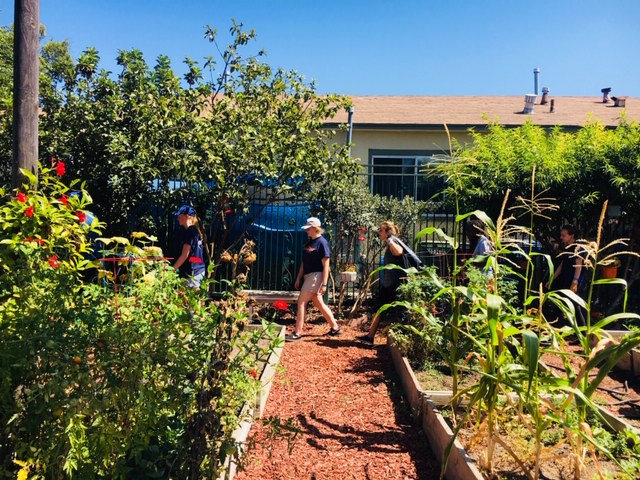Gardening Tips: Companion Planting
Like people on relationships, certain plants like or dislike each other, but there are certain plants that are just loved by everyone and can benefit the entire plant community.

All-around beneficial influence: Plants and characteristics
- Lemon balm (Melissa officinalis) creates a beneficial atmosphere around itself and attracts bees.
- Marjoram (Origanum majorana) has a “beneficial effect on the surrounding plants.”
- Oregano (Origanum vulgare) has a “beneficial effect on the surrounding plants.”
- Stinging nettle (Urtica dioica) helps neighboring plants to grow more resistant to spoiling and stimulates humus formation. Stinging nettle and tomatoes are good garden companions.
- Valerian (Valeriana officinalis) “helps most vegetables”. Stimulates phosphorus activity in its vicinity. It also encourages health and disease resistance in plants.
- Chamomile (Chamaemelum
nobile ) Contains a growth hormone that stimulates the growth of yeast. As a tea, it combats diseases such as damping off in young plants. Concentrates calcium, sulfur, and potash in its body. - Dandelion (Taraxacum officinale) increases the aromatic quality of all herbs and in small amounts, it helps most vegetables, because of the concentration of potash in its body.
Oak tree (Quercus spp.) concentrates calcium in its bark. In a special tea, it helps plants resist harmful diseases. Its beneficial influence helps create excellent soil underneath its branches.
Note: Lemon balm, marjoram, oregano, dandelion, chamomile, stinging nettle, and valerian are perennial plants. They’re traditionally planted in a section along an end of the bed so they need not be disturbed when the bed if replanted.
Reference
Jeavons, J. (2017). How to Grow More Vegetables* (9th Ed.) California; New York: Ten Speed Press.
Diana Campos
0
